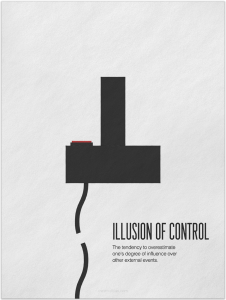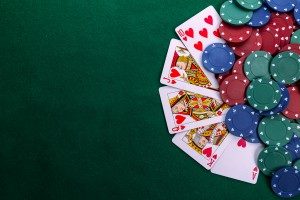 The discussion about control is as old as the world. However, we often do not have as much control as we are inclined to believe we have. This message is not the most pleasant even for the most enthusiastic player. But that's how it should be.
The discussion about control is as old as the world. However, we often do not have as much control as we are inclined to believe we have. This message is not the most pleasant even for the most enthusiastic player. But that's how it should be.
Until now, when talking about the human mind, we have used the computer metaphor. Most scientists studying the mind and its processes believe it is a good analogy to describe the brain's work, so it is worth analyzing it more thoroughly.
Until now, we agreed that conscious poker theory works similarly to a computer program, but we can say that know-how knowledge is also a computer program that is simpler, faster, and so on. So, when we sit at the table, our know-how program buzzes in the mind and directs the fingers on what to press, interprets perception, and provides responses to it.
But like any program, this one is also constructed according to a certain code. Therefore, if there are some errors in your code, it will make you take inappropriate actions, and you will not be able to avoid such errors. They will repeat and repeat until you rewrite your internal know-how code.
You may notice that this metaphor limits, not allowing you to play better or worse at any given moment, although we actually do. So, it may seem too limiting to you. But think, when you sit at the table and play poker, what do you really control? Understand, at any given moment, all your strategies that you would use as a response are already arranged in your neural network, so the internal code is already written. During the game, you have no conscious control. This means that you cannot suddenly “decide” to use a strategy if you do not know that it is a good strategy or “decide” to make a mistake in a spot where you are already inclined to make it.
Of course, over time, you can change your tendencies, adjust the neural network, rewrite the mind's code. But this is a gradual, piecemeal process, where you slowly break bad habits and develop good ones.
There are a few factors that still affect pure consciousness and that you can control. What are they?
First, you can control your initial game selection standards – for example, the level of players you will sit with at the same table. I emphasize the word initial. If you tilt, there is a high probability that you will throw all standards overboard and play with anyone. Tilt is usually caused by the limbic system, which forcefully pushes aside most conscious processes. So, what you can really consciously control is the level of players at the tables you sit at. However, if you tilt, there is only a 5% chance that you will resist the tilt and move on. Over time, this problem can be solved, but during the current session, it is part of you.
session, it is part of you.
The second thing you can control is when and in what state you start playing. You might choose to play in the mornings or nights, during the day, or maybe before you have breakfast, after experiencing a stressful situation, and so on. Each of these options will affect your game, and this choice is fully within your control.
Third, you can control what rituals you perform before or during the game. This is very important. Rituals can be, for example, watching hand or poker videos before the session, reading inspiring or
educational literature, exercising, repeating mantras, stretching or breathing exercises, etc. It can also be taking breaks at certain intervals, stopping playing at a certain time or after dropping down a certain number of buy-ins, playing without distractions, and so on. Rituals are valuable because they can help the mind achieve set goals. Even if the ritual is only in the middle of the session and catches you in a place where the mind was already “switched off,” it will force you to return to this moment and unite with conscious intentions.
So we are not completely powerless, but apart from a few of these things, almost everything that happens during poker is not in our hands. Who sits at your table, how badly they play, how long the fish stay, how many kings against aces or aces against kings you get, how many times you outplay the fish, how many times you bluff – all this is in your control as much as the three factors mentioned earlier. Everything else is just a combination of what has already been, one of the probabilities that could have occurred when you started playing.





